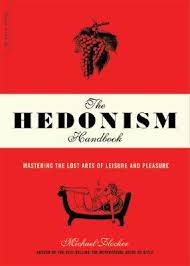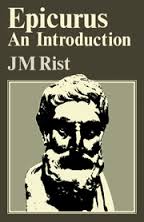There is a utilitarian theme in current philosophical scholarship represented by the works of Jeremy Bentham, known as the “Father of Modern Utilitarianism.” This utilitarian mentality, not so different from materialist hedonism, drives people to live to the fullest while they can, seeking as much pleasure as possible in youth while still able to enjoy it. The question posed by the pleasure principle is still at work here: “What will fully, lastingly, satisfy my desire to be happy and fulfilled?”

Detail of Portrait of Jeremy Bentham by Henry William Pickersgill (National Portrait Gallery, London)
Read the following excerpt from Jeremy Bentham’s book, An Introduction to the Principles of Morals and Legislation.
Chapter I
OF THE PRINCIPLE OF UTILITY
I. Nature has placed mankind under the governance of two sovereign masters, pain and pleasure. It is for them alone to point out what we ought to do, as well as to determine what we shall do. On the one hand the standard of right and wrong, on the other the chain of causes and effects, are fastened to their throne. They govern us in all we do, in all we say, in all we think: every effort we can make to throw off our subjection, will serve but to demonstrate and confirm it. In words a man may pretend to abjure their empire: but in reality he will remain subject to it all the while. The principle of utility recognizes this subjection, and assumes it for the foundation of that system, the object of which is to rear the fabric of felicity by the hands of reason and of law. Systems which attempt to question it, deal in sounds instead of sense, in caprice instead of reason, in darkness instead of light.
II. The principle of utility is the foundation of the present work: it will be proper therefore at the outset to give an explicit and determinate account of what is meant by it. By the principle of utility is meant that principle which approves or disapproves of every action whatsoever, according to the tendency it appears to have to augment or diminish the happiness of the party whose interest is in question: or, what is the same thing in other words, to promote or to oppose that happiness. I say of every action whatsoever, and therefore not only of every action of a private individual, but of every measure of government.
III. By utility is meant that property in any object, whereby it tends to produce benefit, advantage, pleasure, good, or happiness, (all this in the present case comes to the same thing) or (what comes again to the same thing) to prevent the happening of mischief, pain, evil, or unhappiness to the party whose interest is considered: if that party be the community in general, then the happiness of the community: if a particular individual, then the happiness of that individual.
IV. The interest of the community is one of the most general expressions that can occur in the phraseology of morals: no wonder that the meaning of it is often lost. When it has a meaning, it is this. The community is a fictitious body, composed of the individual persons who are considered as constituting as it were its members. The interest of the community then is, what?—the sum of the interests of the several members who compose it.
V. It is in vain to talk of the interest of the community, without understanding what is the interest of the individual. A thing is said to promote the interest, or to be for the interest, of an individual, when it tends to add to the sum total of his pleasures: or, what comes to the same thing, to diminish the sum total of his pains.
VI. An action then may be said to be conformable to the principle of utility, or, for shortness sake, to utility, (meaning with respect to the community at large) when the tendency it has to augment the happiness of the community is greater than any it has to diminish it.
VII. A measure of government (which is but a particular kind of action, performed by a particular person or persons) may be said to be conformable to or dictated by the principle of utility, when in like manner the tendency which it has to augment the happiness of the community is greater than any which it has to diminish it.
VIII. When an action, or in particular a measure of government, is supposed by a man to be conformable to the principle of utility, it may be convenient, for the purposes of discourse, to imagine a kind of law or dictate, called a law or dictate of utility: and to speak of the action in question, as being conformable to such law or dictate.
IX. A man may be said to be a partizan of the principle of utility, when the approbation or disapprobation he annexes to any action, or to any measure, is determined by and proportioned to the tendency which he conceives it to have to augment or to diminish the happiness of the community: or in other words, to its conformity or unconformity to the laws or dictates of utility.
X. Of an action that is conformable to the principle of utility one may always say either that it is one that ought to be done, or at least that it is not one that ought not to be done. One may say also, that it is right it should be done; at least that it is not wrong it should be done: that it is a right action; at least that it is not a wrong action. When thus interpreted, the words ought, and right and wrong and others of that stamp, have a meaning: when otherwise, they have none.
Editor’s Note: Using these and other ideas of Bentham’s has produced something referred to as Bentham’s Hedonic Calculus, which seeks to measure the amount of pleasure or pain in a given action. The basic criteria are given below:
- The intensity of any pleasure or pain.
- The duration of any pleasure or pain.
- The certainty or uncertainty of any pleasure or pain.
- The remoteness of any pleasure or pain (or how much the legislator might be affected).
- The chances of the same effects being repeated (More pleasure or more pain?).
- The chances of the same effects not being repeated (No more pleasure or pain?).
- The number of people who will be affected by any pleasure or pain arising as a result of the act in question.








